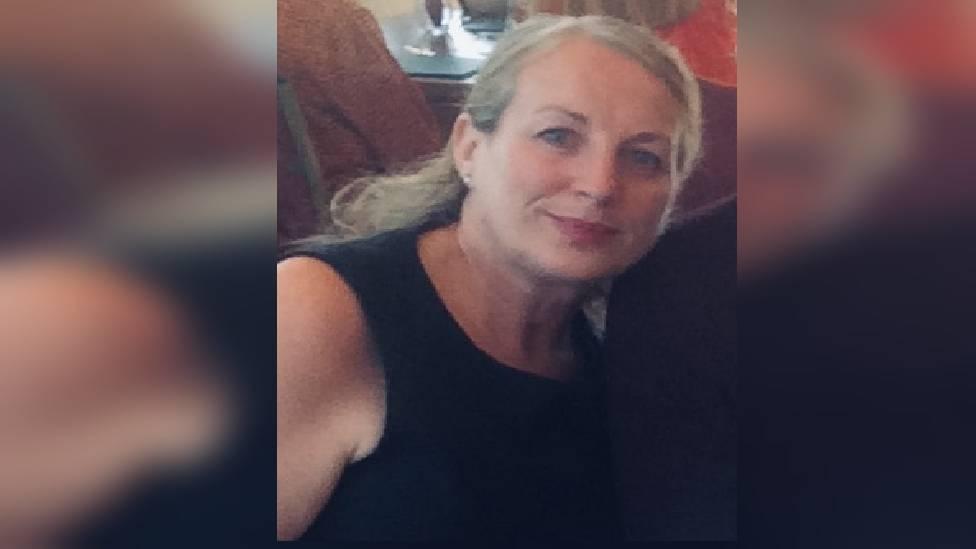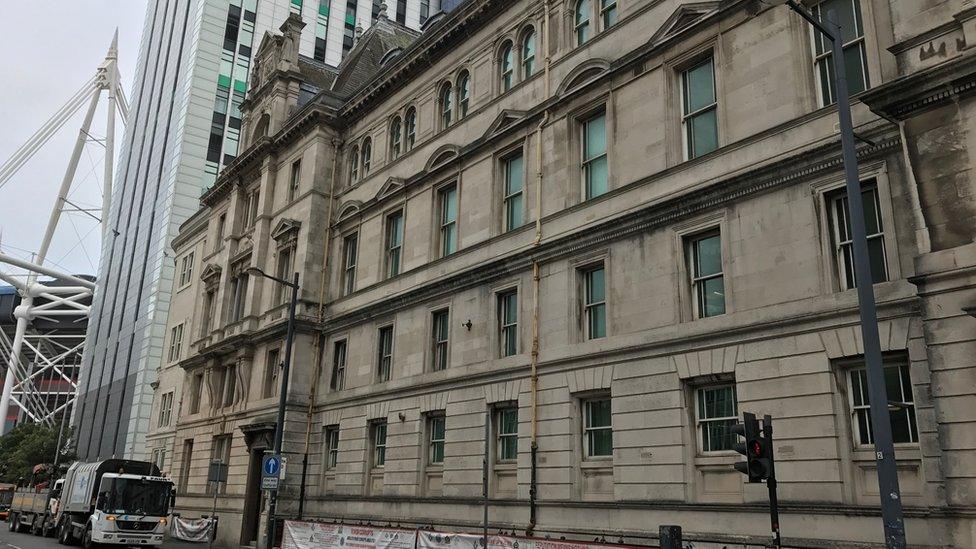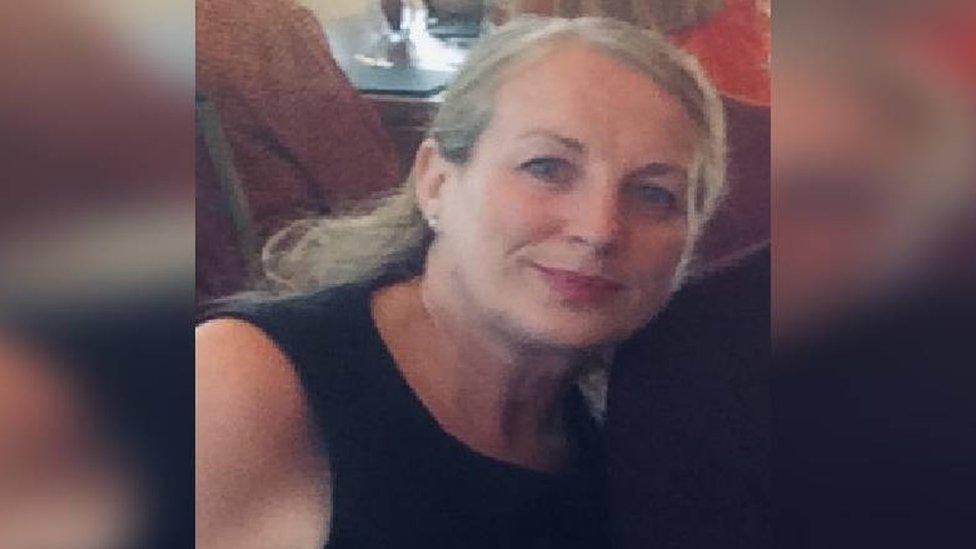Caerphilly cancer patient wins court battle for surgery
- Published

Ms Wallpott said she felt like the victim of "an NHS postcode lottery"
A woman who took health bosses to court after they twice refused to pay for her cancer surgery has won her case.
Maria Wallpott, of Pontllanfraith, in Caerphilly county, was diagnosed with stage four appendix cancer in April, which has since spread to her ovaries.
She went to court after funding was refused for her treatment by Aneurin Bevan health board and the Welsh Health Specialist Services Committee.
Ms Wallpott said she was "relieved" the court had found in her favour.
"I want to live to see my children graduate, fall in love, and have their own children, is that too much to ask?" she added.
The £73,000 treatment is only granted in exceptional circumstances in Wales, but is automatically available to patients in England, Scotland and Northern Ireland.
The court heard the procedure is said to result in patients having a 40% chance of surviving for five years.
In her judgment at the High Court in Cardiff on Friday, Mrs Justice Steyn found the panel's decision was unlawful.
During a two-day hearing, health board lawyers argued the decision by Welsh Individual Patients Funding Requests (IPFR) was correct and mother-of-two Ms Wallpott, 50, did not meet the criteria.

The case was heard at the Cardiff Civil and Family Justice Centre
They said there was a lack of evidence to show it would help her and would "not be cost-effective".
However, Vikram Sachdeva QC, representing Ms Wallpott, argued the National Institute for Health and Care Excellence (Nice) guidance said the procedure could benefit those with his client's condition.
Mr Sachdeva said it could potentially save her life, and at least improve it.
"Patients are entitled to a lawful decision-making process, especially when these decisions could mean the difference between life or death," he said.
Speaking after the hearing, Ms Wallpott said: "The IPFR panel, made up of non-experts in my condition, have forgotten they are dealing with a human being, not hypothetical case studies.
"I still, however, need the IPFR panel to do the right thing and give me a chance of surviving this cancer."
The WHSSC, a joint committee made up of the seven local health boards in Wales, said decisions on services were based on reviewing evidence of clinical and cost-effectiveness.
It said it could not comment on individual cases but would "reflect on the court's judgement and take the appropriate actions".
Related topics
- Published1 December 2021

- Published2 December 2021
